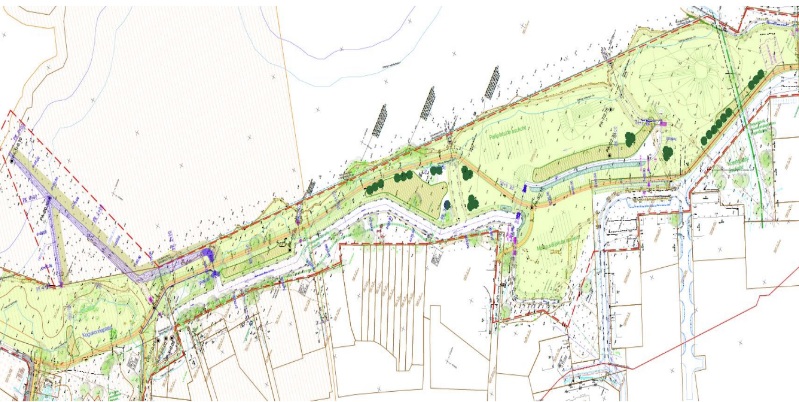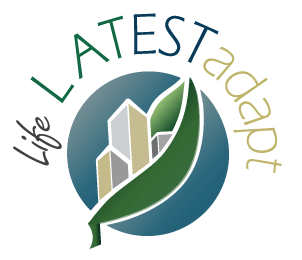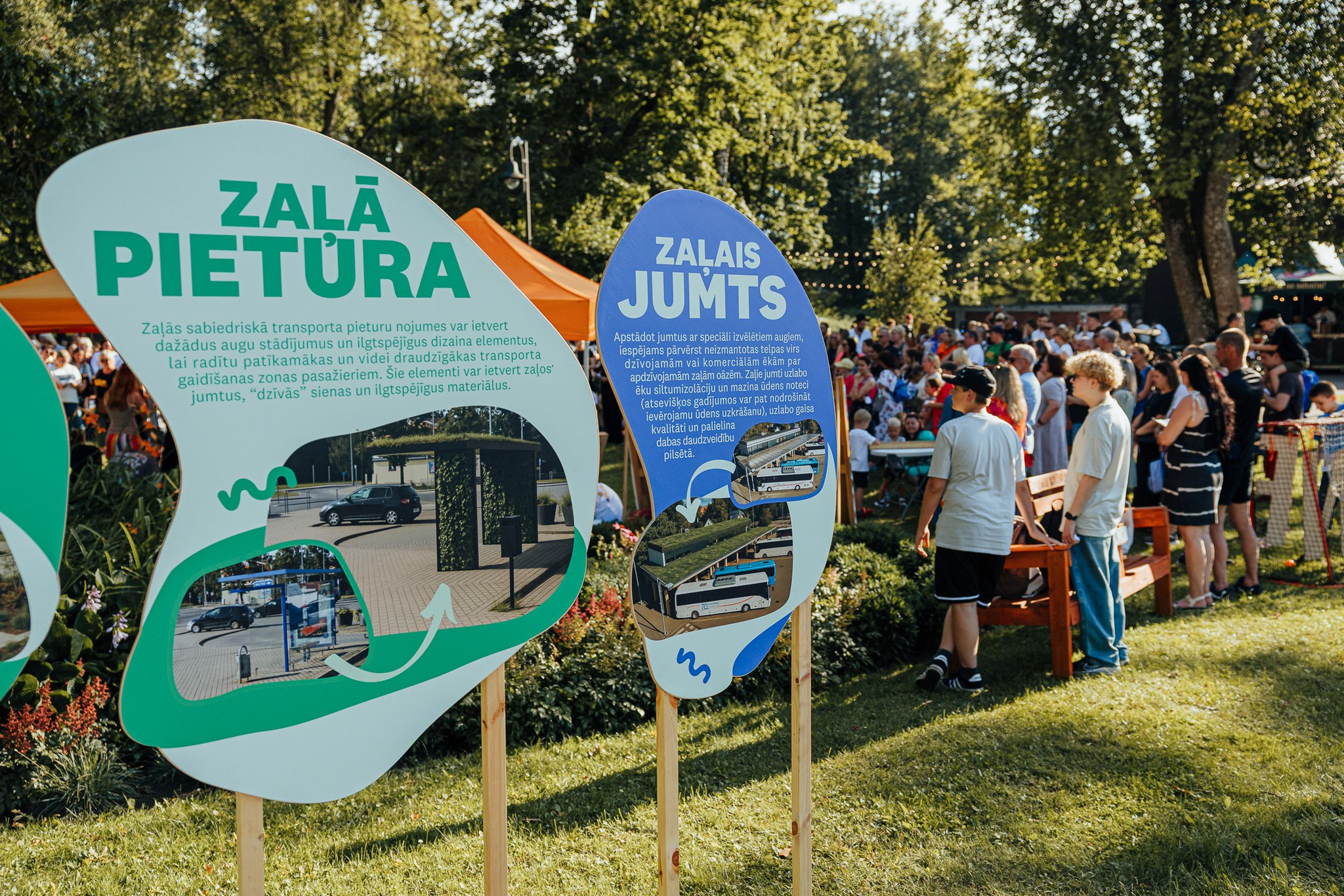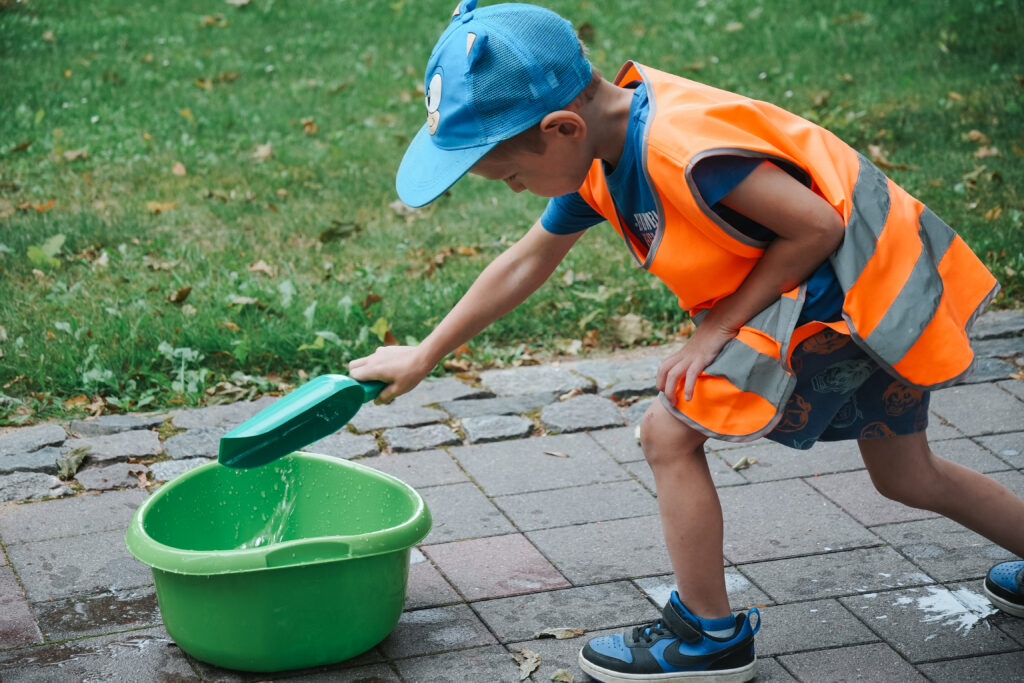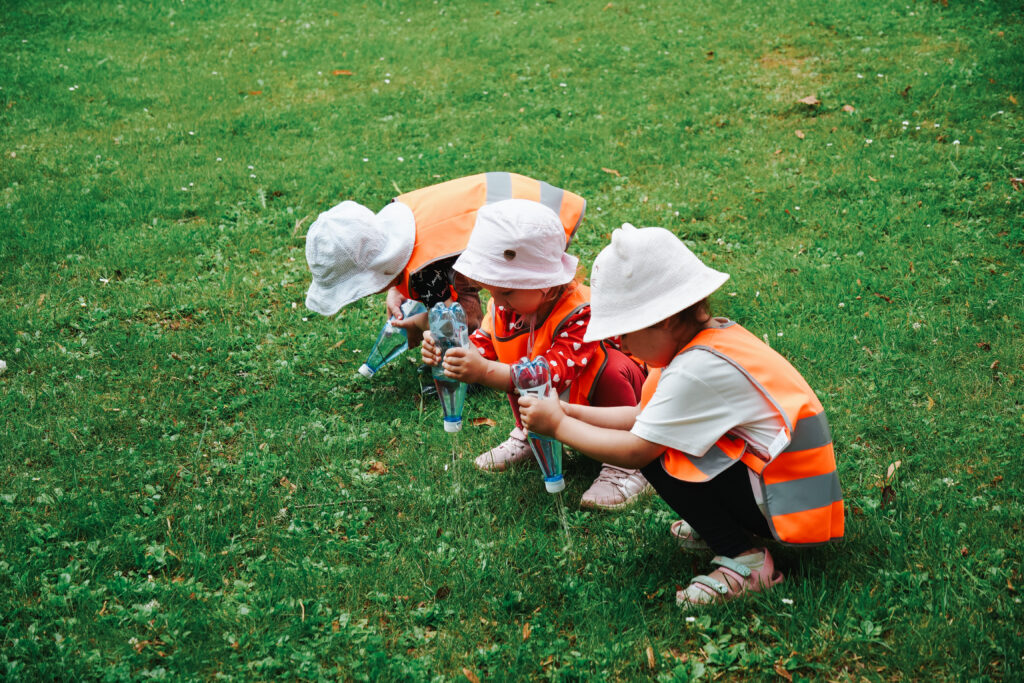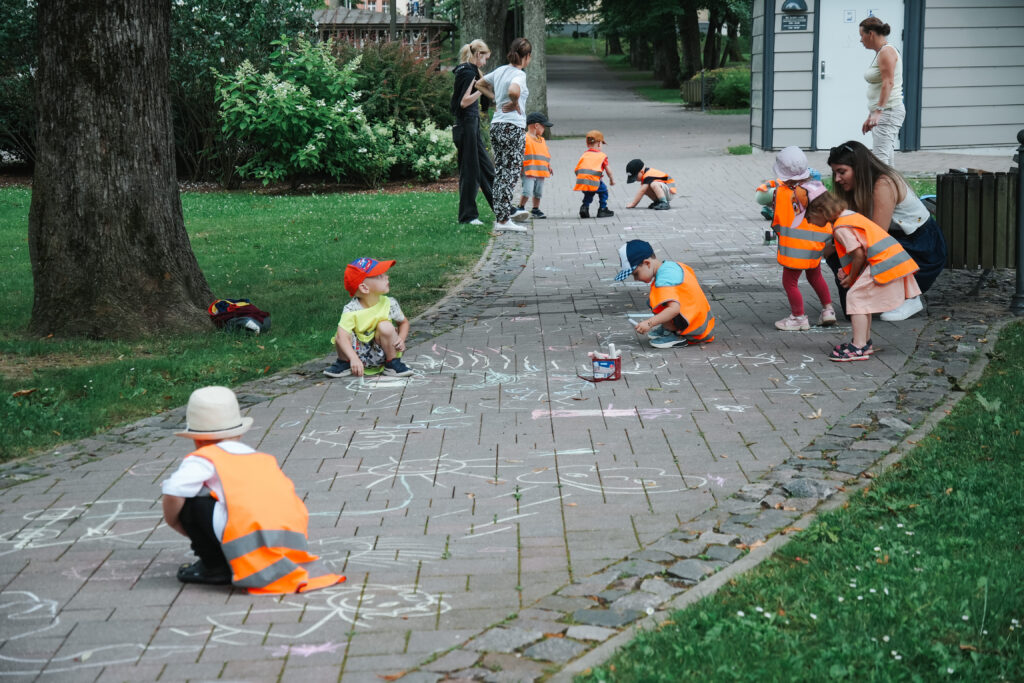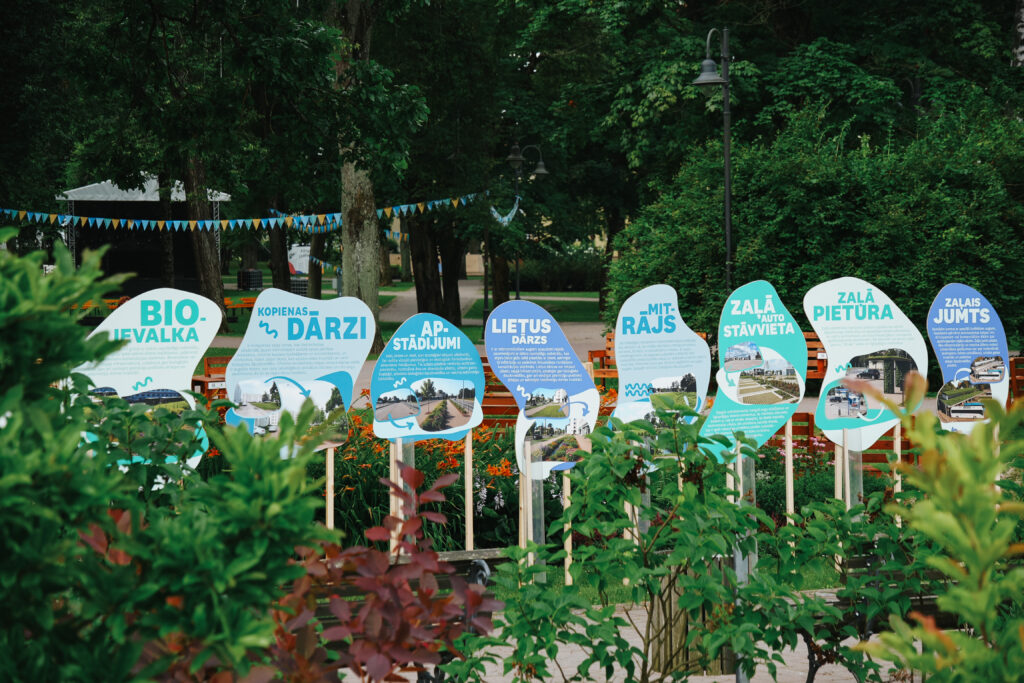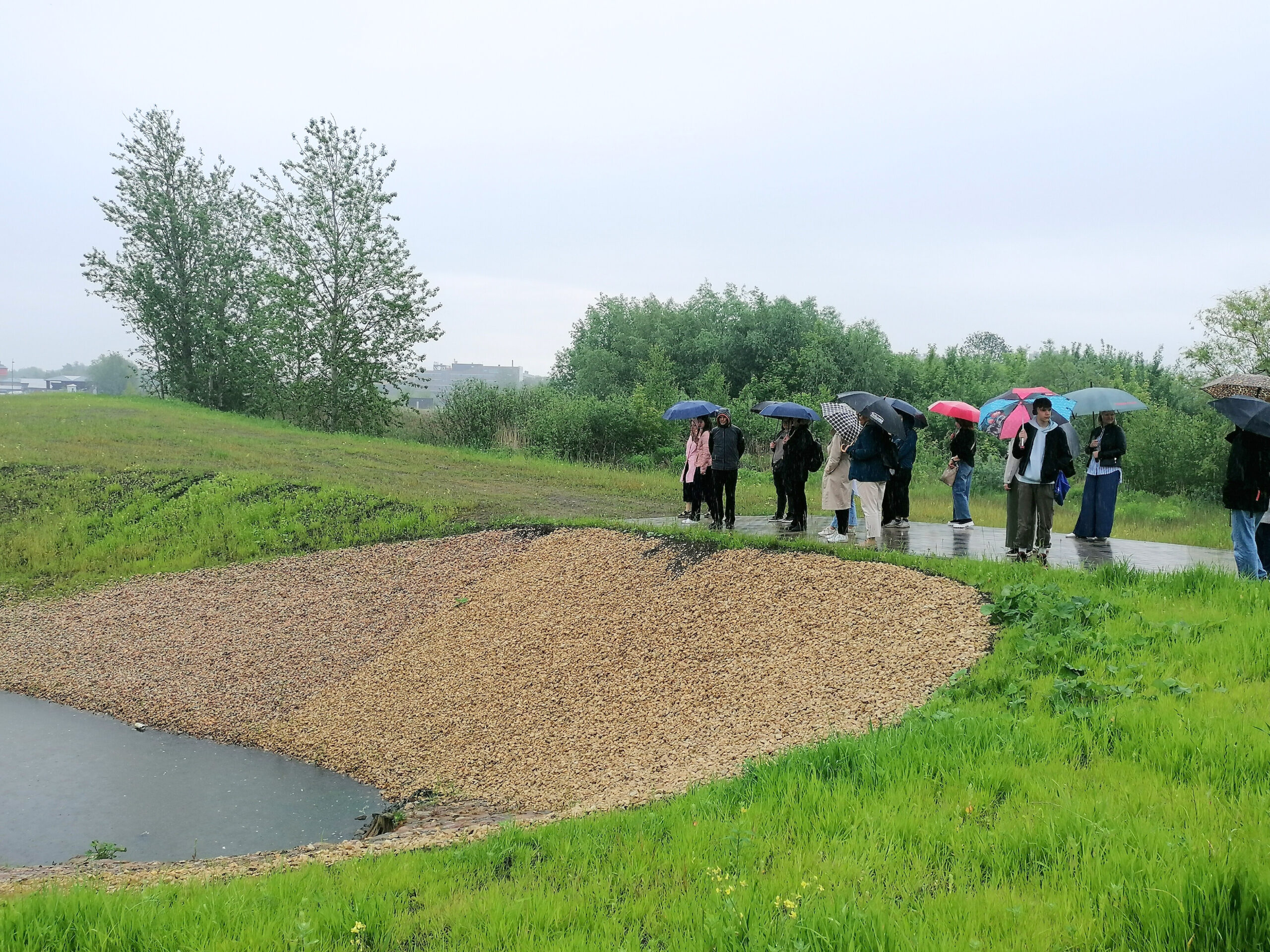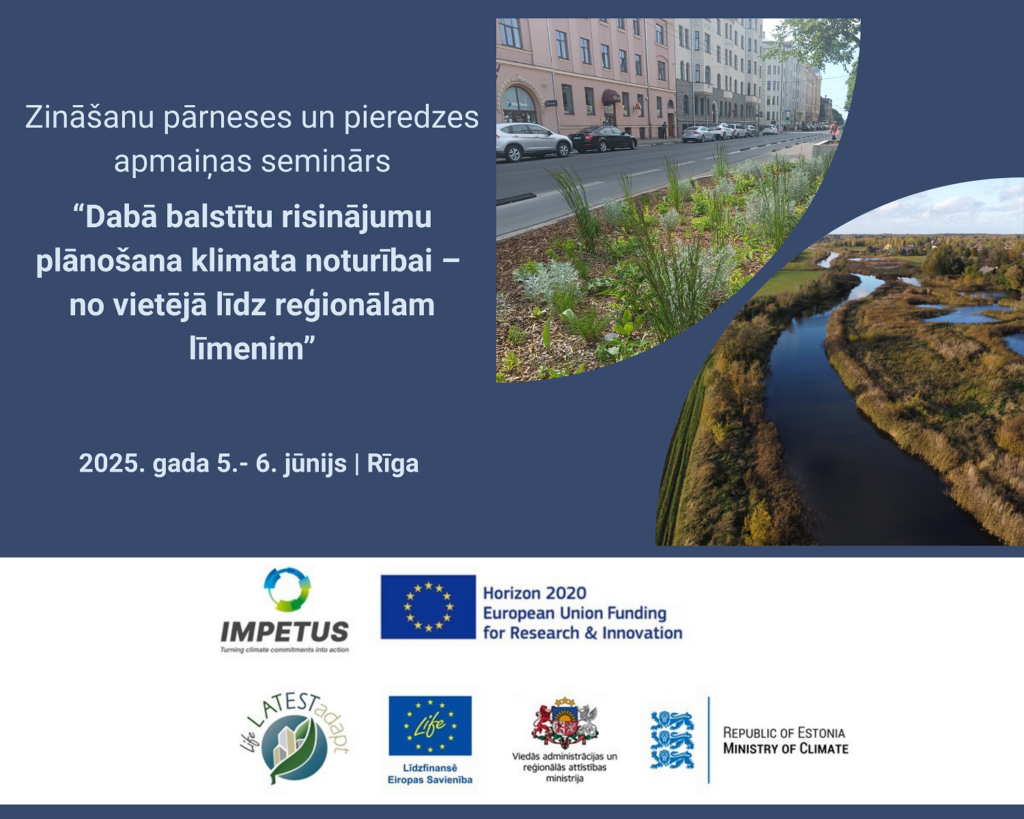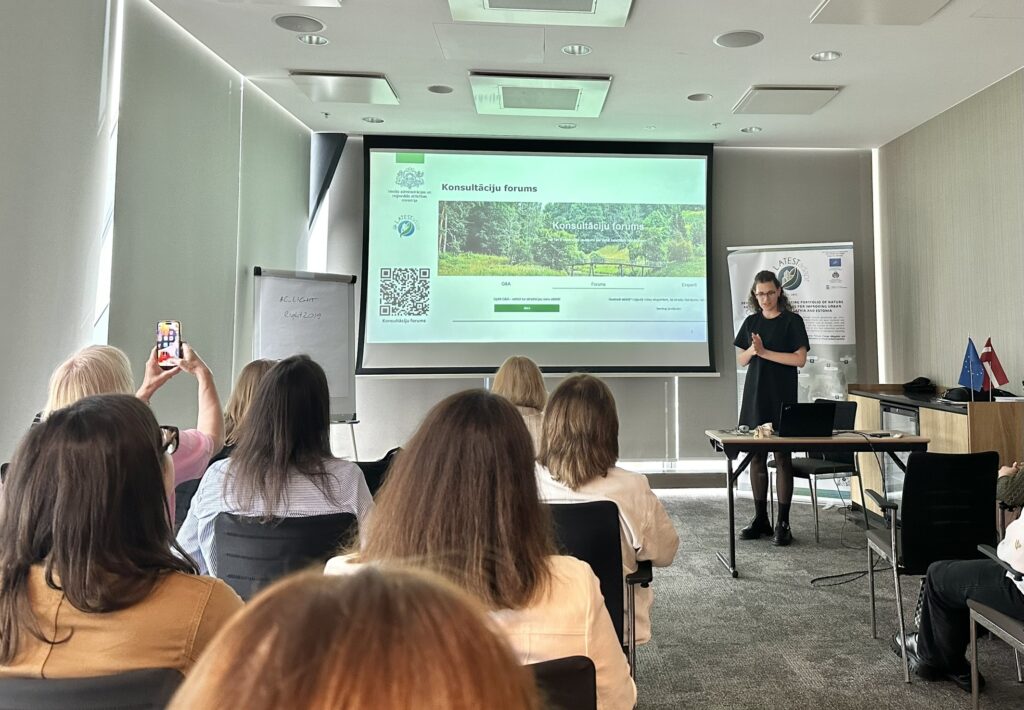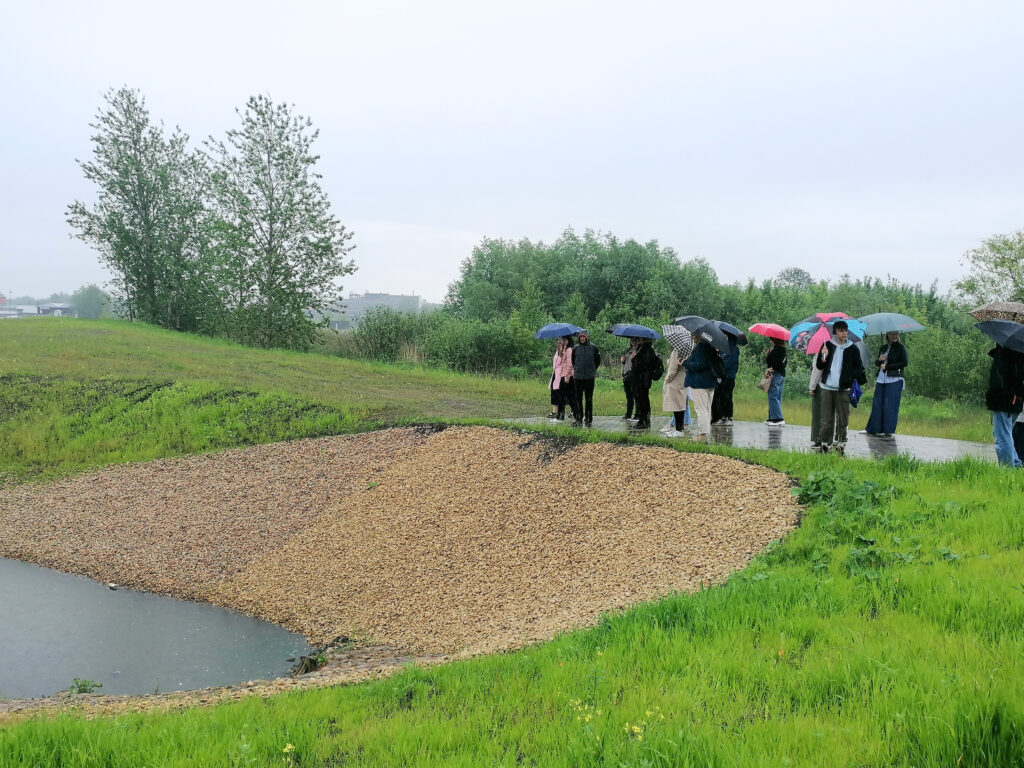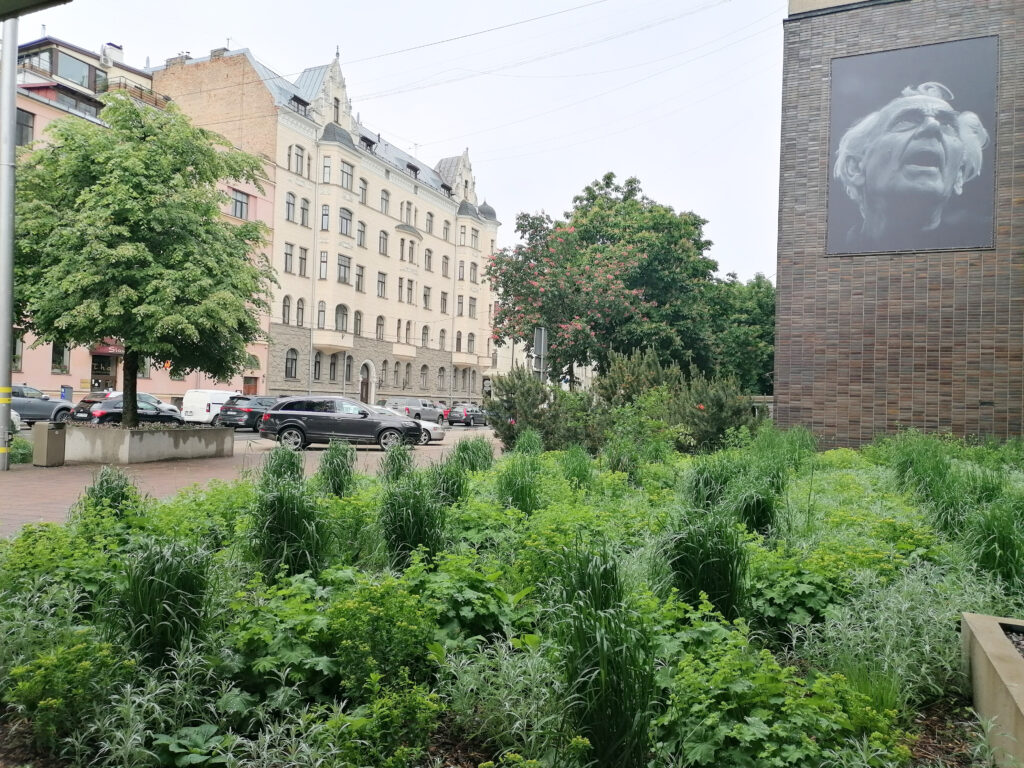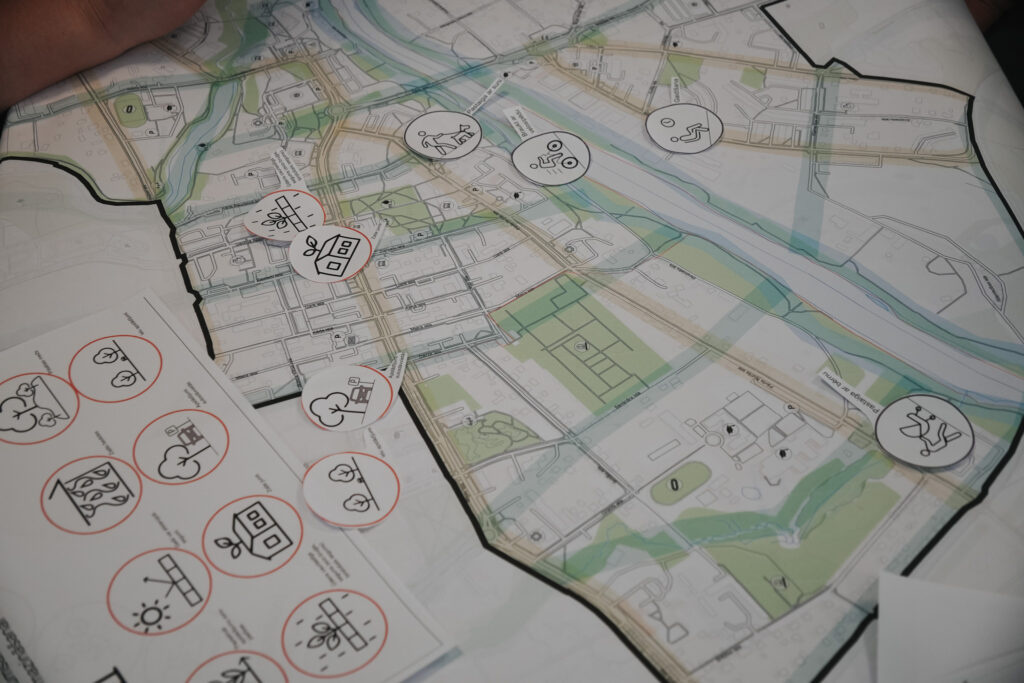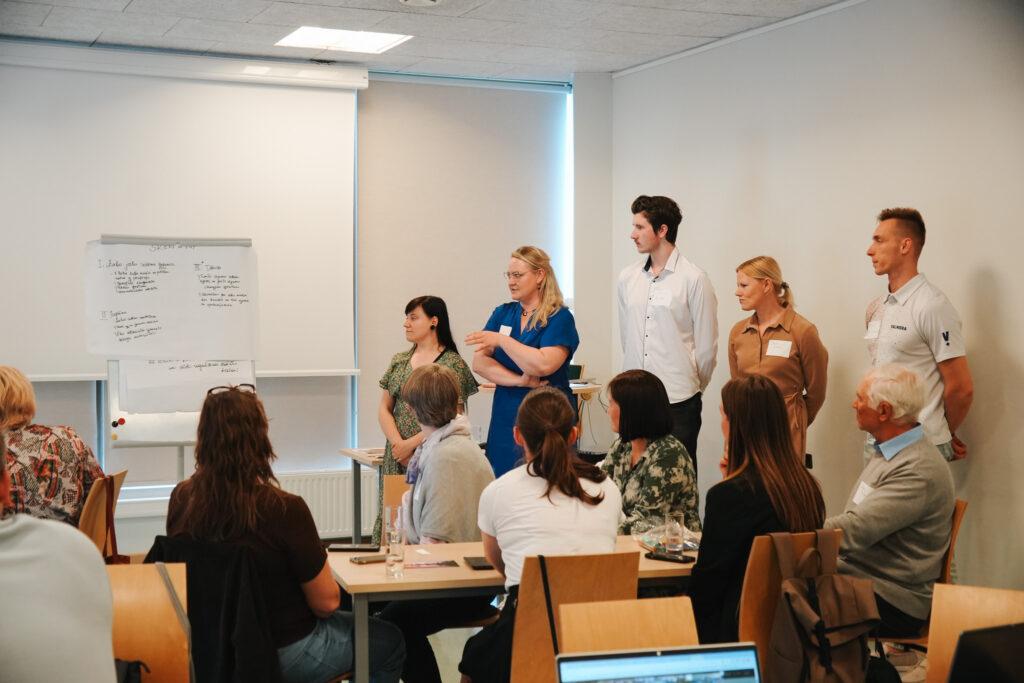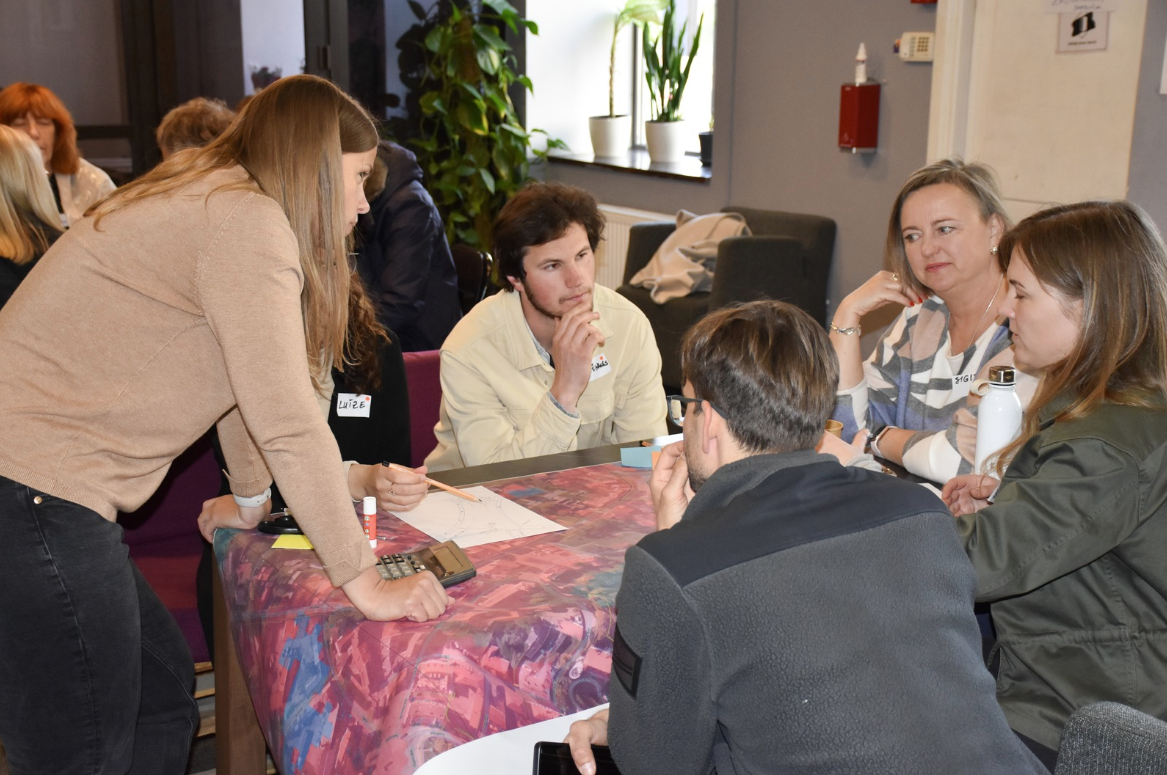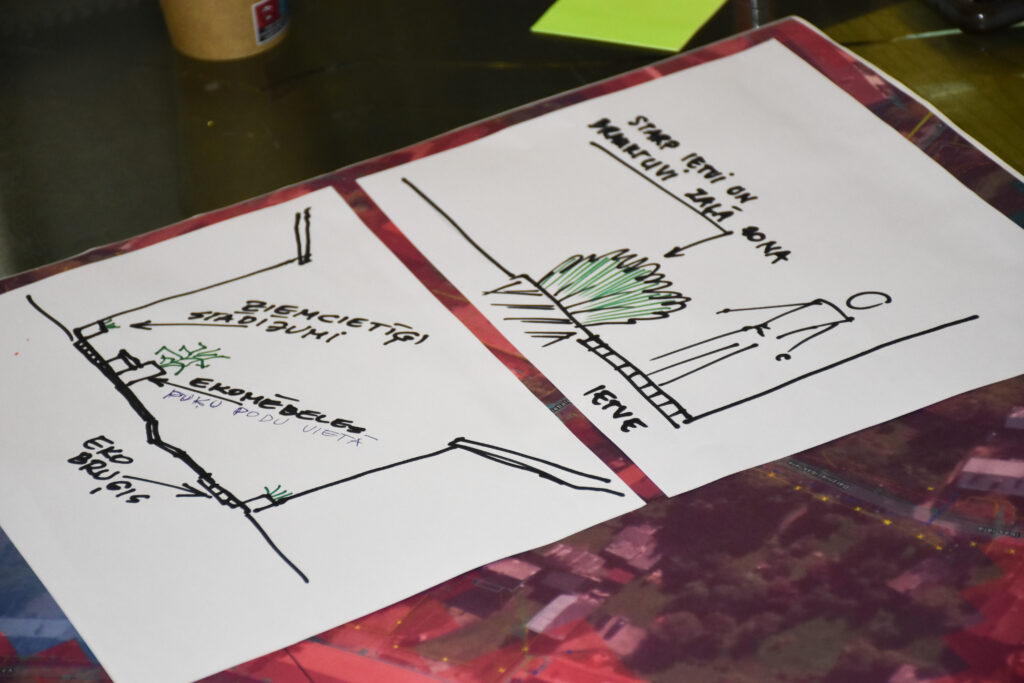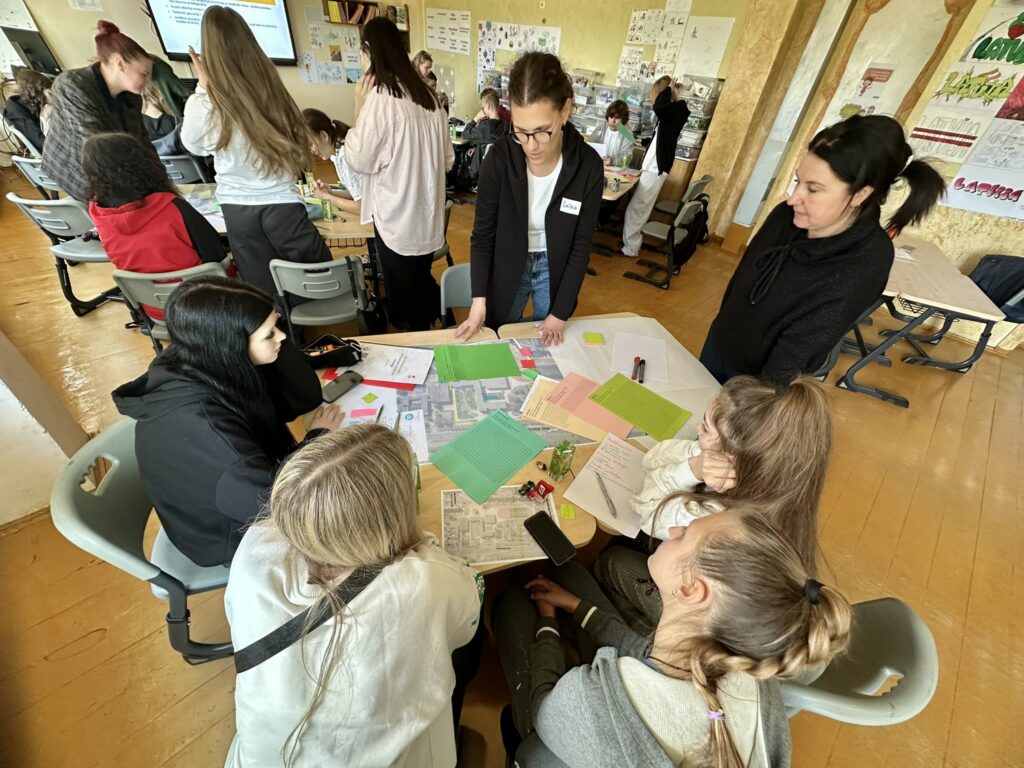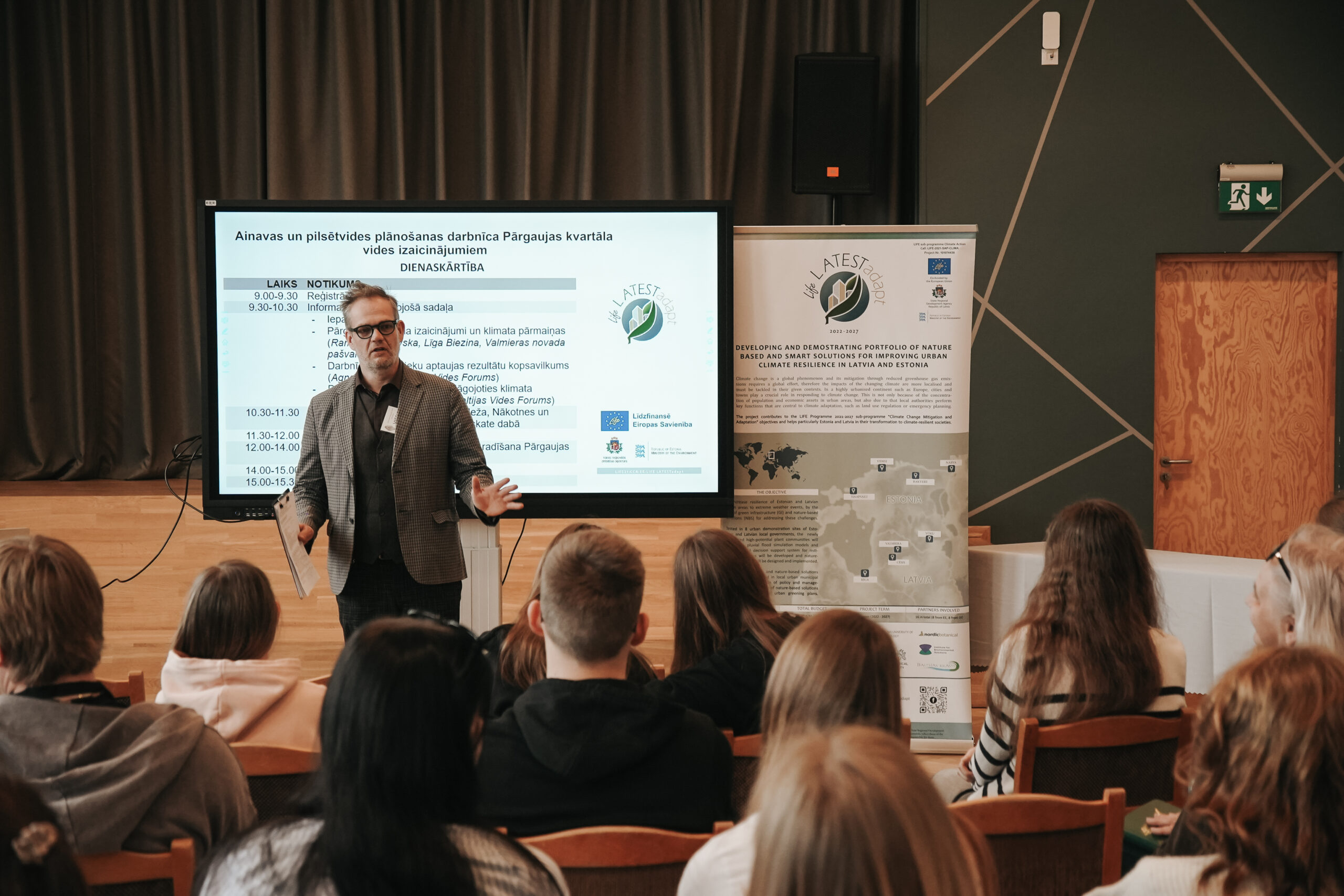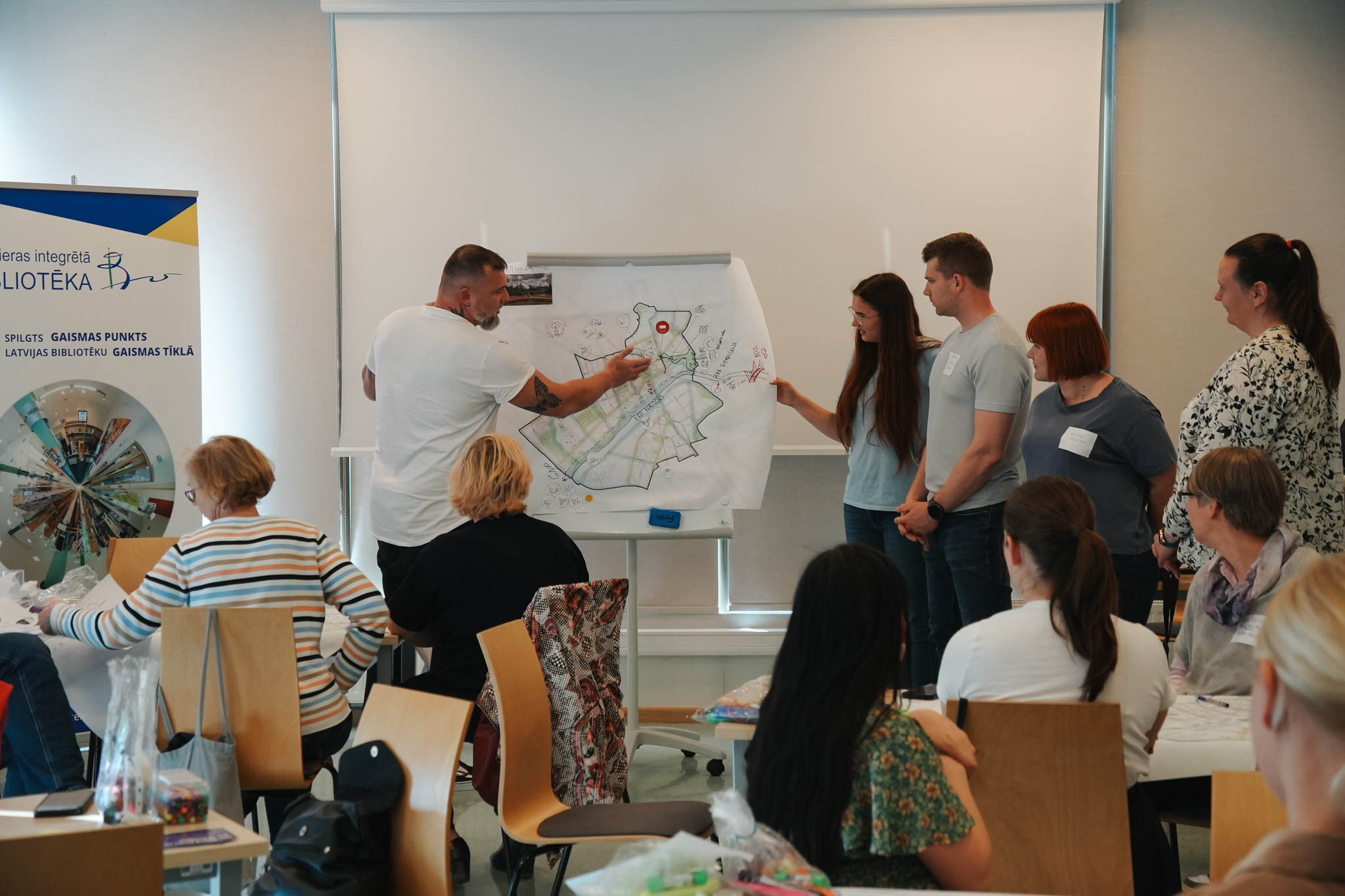
On 27 May, Valmiera hosted a landscape and urban planning workshop “Valmiera’s Green Infrastructure Development Plan”. The workshop brought together representatives from various fields and citizens to discuss and propose solutions for the development of Valmiera’s urban green infrastructure.
The workshop was led by Kristīne Dreija, landscape architect and project manager at Grupa 93 Ltd, the developer of the thematic plan “Valmiera State City Green Infrastructure Development Plan”. In the introductory part, the participants were introduced to the concept of greening plans, their necessity and role in the development of the city.
The workshop continued in several working groups, with the task to find a greening plan or best practice examples in other cities around the world, and to suggest what could be planned or implemented in Valmiera. How do participants see Valmiera in 2050? The answers were very diverse – improved, more comfortable, more modern, with ten times more cyclists, an inclusive environment for both people and nature, with interesting courtyards of apartment buildings, green roofs and walls in the urban environment and most importantly – river Gauja is the main street of the city, it flows through the city and its banks are still green, with trees and shrubs.
The main task of the workshop was to mark on a map of the city which activities (recreational, daily, social) could be planned in the different zones. Among the activities proposed, the teams chose areas where they could locate, for example, a community garden, water attractions, sports activities, fishing, jogging, dog walking, cycling or picnics in nature. Similarly, nature-based solutions could be planned in the urban environment. Green walls or green roofs, permeable pavements and greenery were the most common solutions chosen by the teams.
There was a lot of lively discussion among the teams about potential solutions to include in their vision for the future of the city. The teams’ presentations of their ideas included a variety of ideas on how to improve or increase the amount of green space in the city, as well as how to reduce the impact of environmental problems on a given area, such as reducing the risk of heat islands or flooding, by using nature-based solutions.
The solutions presented were interesting and creative, placed in different locations around the city, such as:
- a walking trail in the air above the Rātsupīte River;
- movable potted trees;
- installing green walls on buildings in urban areas;
- greening the whole length of Riga Street, especially where the width of the footpath allows it to be reduced and replaced by greenery;
- create a recreation area on both sides of the Gauja River, create a connection between the bridges;
- create shallow pools to cool off in hot weather;
- lay permeable pavements in areas that flood frequently;
- storing rainwater for urban maintenance;
- create mini squares;
- outdoor exercise facilities;
- think about biodiversity in the urban environment through greening.
Thank you to everyone who participated and contributed to urban planning! More workshops with citizens’ involvement and participation are expected in 2025. It is planned that during the celebration of Valmiera’s 742nd birthday, visitors will have the opportunity to learn more about nature-based solutions and their application in the urban environment.
Valmiera Municipality Government is a partner of the LIFE LATESTadapt project of the European Union LIFE Programme. In the framework of this project, research has been carried out in 2023 and 2024 on environmental problem areas in Valmiera related to climate change impacts – heat waves and flooding caused by heavy rainfall. Based on the data obtained from the research, the thematic planning “Valmiera State City Green Infrastructure Development Plan” is being developed.
The thematic planning will provide for a unified network of green infrastructure in Valmiera, solutions to prevent flood risks caused by storm water in Valmiera’s urban environment, to reduce the heat island effect, as well as to preserve biodiversity, while respecting the well-being of the population. Involvement of various stakeholders – residents, professionals, entrepreneurs – is crucial for the full development of the thematic plan.
The workshop was organised within the framework of the European Union LIFE Programme project “Development and demonstration of a portfolio of nature-based and smart solutions for improving urban climate resilience in Latvia and Estonia” (LIFE LATESTadapt) with co-financing from the Ministry of Smart Administration and Regional Development, National Digital Development Agency and Valmiera Municipality.
Information prepared by:
Elizabete Brūvere
Valmiera Municipality Government
Brading and public relations department
Environmental communication project manager
